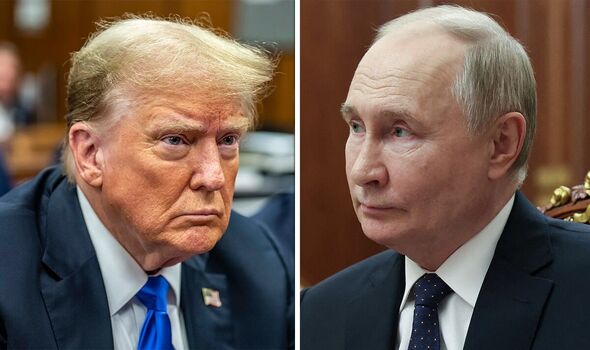Vladimir Putin will be “rubbing his hands with glee” at Donald Trump’s blistering attack on the US legal system after his convictions from his hush money trial, a former White House national security adviser has warned.
Fiona Hill, who has served under three US Presidents including Mr Trump himself between 2017 and 2019, issued her warning after the 77-year-old billionaire made unfounded claims that his “rigged” trial was politically motivated.
Speaking at Trump Tower, where he lives, Trump insisted: “If they can do this to me, they can do this to anyone.”
However, Ms Hill and other experts fear Trump’s attacks could be useful to Putin and other autocrats as they look to boost their standing among their own citizens, potentially swaying the upcoming US presidential election in which Trump is the presumptive Republican nominee, and undermine the United States’ global influence.
Suggesting Putin would be “rubbing his hands in glee” thousands of miles away in the Kremlin, she said of the Russian President: “What mischief does he have to make when you have people within the American system itself denigrating it and pulling it down?”
The attacks were “perfect fodder” for another “major propaganda and influence operation”.
She explained: “For Putin, it must be perfect because it creates a mess that he can try to seek advantage from.”
Mr Trump was last week found guilty of 34 counts of falsification of business records in relation to a £100,000 payment by lawyer Michael Cohen to porn star Stormy Daniels.
The payment was allegedly to buy Ms Daniels’s silence over a sexual encounter with Mr Trump she claims she had in 2006.
Kremlin spokesman Dmitry Peskov called the verdict an “elimination of political rivals by all possible legal or illegal means.”
Putin himself has described the prosecution of Trump as political revenge which “shows the rottenness of the American political system.”
Hungary’s populist, pro-Russia prime minister, Viktor Orban, called Trump a “man of honour” and urged him to “keep on fighting.”
China’s state-owned Global Times newspaper suggested Trump’s conviction adds to the “farcical nature” of this year’s US presidential election, adding that it will aggravate political extremism and end in “more chaos and social unrest”.
Putin is particularly likely to see the latest turmoil as an opportunity, analysts believe.
He has long sought to widen divisions in Western societies in an attempt to advance a Russian worldview. Since the invasion of Ukraine, and ahead of crucial elections throughout the West this year, Russia has been accused of carrying out multiple attacks of sabotage and of targeting dissidents abroad to stoke anxieties and sow discord.
Moscow was accused of meddling in the 2016 US election that Trump won/
Political chaos can benefit autocratic leaders by distracting Washington from key issues, including the war in Ukraine.
Russia‘s goal is to move voices from the “fringes of the political debate to the mainstream,” said David Salvo, Managing Director of the Alliance for Securing Democracy at the German Marshall Fund in Washington, DC.
He suggested disagreements in Congress that delayed an aid package to Ukraine followed a Russian social media campaign aimed at Americans. That led to Russia gaining the upper hand on the battlefield.
For generations, US presidential administrations have depicted America as a bastion of democracy, free speech and human rights and have encouraged other states to adopt those ideals.
However, Mr Trump suggested the justice system is being used to persecute him – something that happens in some autocratic countries.
Leaders including Putin “must love” that Trump is criticising “the key institutions of democracy” in the way autocratic states have done for years as it legitimises them in the eyes of their own people said Graeme Robertson, a political science professor at the University of North Carolina at Chapel Hill.
The threat from the “new axis of authoritarians,” including Russia, China, Iran and North Korea was “daunting,” as those states work more closely together with overlapping interests said Matthew Kroenig, a former defence official and vice president at the Atlantic Council’s Scowcroft Center for Strategy and Security.
